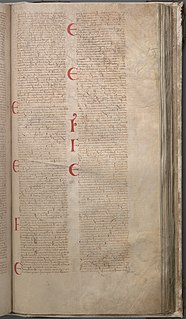 W
WActs 12 is the twelfth chapter of the Acts of the Apostles in the New Testament of the Christian Bible. It records the death of the first apostle, James, son of Zebedee, followed by the miraculous escape of Peter from prison, the death of Herod Agrippa I, and the early ministry of Barnabas and Paul of Tarsus. The book containing this chapter is anonymous, but early Christian tradition uniformly affirmed that Luke composed this book as well as the Gospel of Luke.
 W
WActs 21 is the twenty-first chapter of the Acts of the Apostles in the New Testament of the Christian Bible. It records the end of Paul's third missionary journey and his arrival and reception in Jerusalem. The book containing this chapter is anonymous, but early Christian tradition uniformly affirmed that Luke composed this book as well as the Gospel of Luke.
 W
WActs 27 is the twenty-seventh chapter of the Acts of the Apostles in the New Testament of the Christian Bible. It records the journey of Paul from Caesarea heading to Rome, but stranded for a time in Malta. The book containing this chapter is anonymous but early Christian tradition uniformly affirmed that Luke composed this book as well as the Gospel of Luke.
 W
WLuke 4 is the fourth chapter of the Gospel of Luke in the New Testament of the Christian Bible. This chapter details Jesus' three temptations, his rejection at Nazareth, and the start of his mission. Luke contrasts Jesus' reception in Nazareth with his acclaim in nearby Capernaum.
 W
WLuke 6 is the sixth chapter of the Gospel of Luke in the New Testament of the Christian Bible. Jesus' teaching about the Sabbath enrages the religious authorities and deepens their conflict. The selection of twelve apostles is recounted and this is followed by the "Sermon on the Plain", where key aspects of Jesus' teaching are presented.
 W
WLuke 10 is the tenth chapter of the Gospel of Luke in the New Testament of the Christian Bible. It records the sending of seventy disciples by Jesus, the famous parable about the Good Samaritan, and his visit to the house of Mary and Martha. The book containing this chapter is anonymous, but early Christian tradition uniformly affirmed that Luke composed this Gospel as well as the Acts of the Apostles.
 W
WMark 3 is the third chapter of the Gospel of Mark in the New Testament of the Christian Bible. It relates a conflict over healing on the Sabbath, the commissioning of the Twelve Apostles, a conflict with scribes and a meeting of Jesus with his own family.
 W
WMark 7 is the seventh chapter of the Gospel of Mark in the New Testament of the Christian Bible. This chapter explores Jesus' relationships with both fellow Jews and Gentiles. Jesus speaks with the Pharisees and scribes, and then with his disciples, about defilement, and then heals two gentiles.
 W
WMatthew 11 is the eleventh chapter in the Gospel of Matthew in the New Testament section of the Christian Bible. It continues the narrative about Jesus' ministry in Galilee.
Matthew 15 is the fifteenth chapter in the Gospel of Matthew in the New Testament section of the Christian Bible. It concludes the narrative about Jesus' ministry in Galilee and can be divided into the following subsections:Discourse on Defilement (15:1–20) Exorcising the Canaanite woman's daughter (15:21–28) Healing many on a mountain (15:29-31) Feeding the 4000 (15:32–39)
 W
WMatthew 15:22 is a verse in the fifteenth chapter of the Gospel of Matthew in the New Testament.